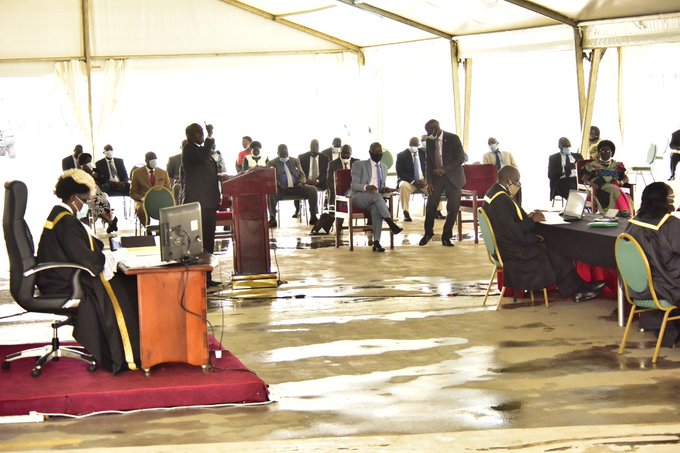Pollution levels in Uganda’s capital, Kampala, are five to seven times higher than the Word Health Organization (WHO) recommends.
This is according to air quality data gathered from monitoring systems in the country in the last seven months and released to mark the global Air Quality Awareness week.
The data also showed that pollution levels during the period of study peaked countrywide in January 2022.
In a joint statement, the country’s National Management Environment Authority, Kampala Capital City Authority and air quality research initiative AirQo, based at Makerere University, called for joint action to reduce air pollution.
Kampala Capital City Authority officials say dust from unpaved roads, emissions from vehicles and industries as well as the open burning of solid waste are responsible for the poor air quality.
The 2021 World Air Quality report ranked Kampala as one of the most polluted cities in the world.
The Statement
Kampala Capital City Authority (KCCA) is to install at least 30 more air quality monitors around the city as one way of addressing air pollution.
The announcement was made by the KCCA Director for Public Health and Environment, Dr Daniel Okello during the launch of the 16th Air Quality Awareness Week press briefing on May 3.
This year’s activities will be commemorated under the theme; “Be Air Aware and Prepared”
Kampala is one of the latest in a growing list of cities taking decisive steps to address the problem of air pollution by monitoring their air quality through installing sensors.
With 100 air monitors, Kampala is one of the cities in Africa with the most air pollution monitors.
Before end of this year, the monitors in the city will have increased to 130.
The monitors offer real-time air quality data. The data on air quality enables decision making to be based on current and accurate information.
According to the 2021 World Air Quality Report, Kampala Capital City was ranked among the most polluted cities, with pollution levels exceeding WHO cut-offs 5 to 7 times, in all monitored locations.
The main sources of air pollution in the city include dust from unpaved roads, domestic solid biomass energy use, exhaust and non-exhaust emissions from vehicles, industrial emissions and open burning of solid waste.
“KCCA is championing the Smart City agenda and in line with this agenda to make the city attractive and sustainable, tackling air pollution is at the center,” Okello says.
With the ever-increasing urban population, air pollution in Kampala City is projected to worsen if no deliberate interventions are implemented.
In Uganda over 26,000 deaths are attributed to air pollution alone annually due to deteriorating air quality
“In Sub-Saharan Africa, Uganda inclusive, air pollution is known to be more deadly and costlier than malnutrition and unsafe water and recently HIV/AIDs, and yet systems and deliberate policies to manage air quality are not fully established,” Okello says
Health conditions whose risk can be increased by air pollution include cardiovascular disease, stroke, lung cancer, and respiratory infection especially among children.
“Improving air quality is everyone’s responsibility, let everyone act appropriately in order to improve the air we breathe,” Okello said.
Among other things to reduce air pollution, KCCA is to tarmac more city roads, promote use of green mobility alternatives like electric mobility, non-motorized transportation and promote efficient waste management.
KCCA will also increase air quality awareness and increase air quality data sharing and public access via apps and website.
City residents can find out more about the air quality from the information provided by nearest neighbourhood monitor via the KCCA website at kcca.go.ug.
Prof Engineer Bainomugisha, the AirQo Project Lead noted that there is a need to facilitate evidence and access to air quality data in order to take action against air pollution and better manage urban spaces.
“As AirQo, we have not only been able to expand our air quality monitoring network across the country but also trained decision-makers on how to analyse, interpret and understand air quality data thereby improving access and facilitating evidence that authorities can use to take mitigation measures,” Bainomugisha says.
The 16th annual Air Quality Awareness Week has been organized by the National Environment Management Authority (NEMA), KCCA, and AirQo, Makerere University, in collaboration with the U.S. Mission Kampala.
















